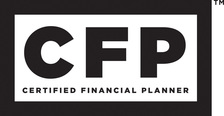WHY WORK WITH A FEE ONLY FINANCIAL PLANNER?
|
Many people have never worked with a financial planner before. Others have worked with an advisor but have either had a confusing or less than positive experience. More often than not people:
|
If you’ve experienced any of the above, the most important thing to realize is that you are not alone. Sadly, the financial services industry has too often added to the confusion, with too many sales people pushing expensive, overly complicated or unnecessary products, ignoring a much greater underlying need.
That said, there are still good options available.
That said, there are still good options available.
A Fee Only Financial Planner Serving as a Fiduciary Must Put Your Interests First
|
An experienced, Fee Only financial planner serving as a “fiduciary” is required, by law, to place your interests first. Fee Only planners may charge by the hour or they may manage investments, charging a flat retainer or, a percent of assets. Either way, Fee Only planners do not accept commissions or fees from others. Fee Only planners are paid by you – and no one else.
A Fee Only planner should work in partnership with you, taking a broad view of your financial life, clarifying your current resources and obligations, evaluating your cash flows, taxes, investments, exposure to risk and either college, retirement or estate planning goals. Most critically, s/he should be able to help you develop concrete strategies and plans to help position you on a path toward achieving your goals. |
What Are the Possible Benefits of Working With a Financial Planner?
In September 2016, Vanguard Research published a white paper that found that financial advisors can add as much as ~3% of value in net portfolio returns per year through more effective financial decision making. A different study by Morningstar found that advice from a financial planner can add as much as 29% more wealth through retirement. Yet another study by John Hancock Retirement Plan Services found that 70% of those who work with a financial advisor or planner are either on track or ahead in saving for retirement, compared with 33% of those not working with an advisor.
Every client's situation is different and there are no guarantees in life, but, ideally, a good financial planner should be able to help you:
In September 2016, Vanguard Research published a white paper that found that financial advisors can add as much as ~3% of value in net portfolio returns per year through more effective financial decision making. A different study by Morningstar found that advice from a financial planner can add as much as 29% more wealth through retirement. Yet another study by John Hancock Retirement Plan Services found that 70% of those who work with a financial advisor or planner are either on track or ahead in saving for retirement, compared with 33% of those not working with an advisor.
Every client's situation is different and there are no guarantees in life, but, ideally, a good financial planner should be able to help you:
|
What Might It Cost?
Hourly financial planning fees vary, ranging from $180 an hour up to $400 or more per hour. Clarity Northwest charges $280 per hour.
Each firm’s process is a little different but an initial financial planning engagement may require anywhere from 12 to 40+ hours of work. The total number of hours involved will depend on the complexity of your situation, the number of people involved, the areas of analysis, as well as your own familiarity with the issues at hand.
An initial plan will typically entail 2-3 meetings with you, with each meeting lasting between 1 ½ - 2+ hours. The remaining engagement time is typically spent on synthesis, analysis, plan development, and finally, a write-up that documents plan assumptions, as well as a detailed list of action items. Ideally too, this initial plan can serve as a foundation for many years to come. Barring major life changes, subsequent engagements typically involve fewer hours. Planners typically recommend annual meetings as a way to “check in,” to see where you are in relation to your plan and to make adjustments as needed.
Hourly financial planning fees vary, ranging from $180 an hour up to $400 or more per hour. Clarity Northwest charges $280 per hour.
Each firm’s process is a little different but an initial financial planning engagement may require anywhere from 12 to 40+ hours of work. The total number of hours involved will depend on the complexity of your situation, the number of people involved, the areas of analysis, as well as your own familiarity with the issues at hand.
An initial plan will typically entail 2-3 meetings with you, with each meeting lasting between 1 ½ - 2+ hours. The remaining engagement time is typically spent on synthesis, analysis, plan development, and finally, a write-up that documents plan assumptions, as well as a detailed list of action items. Ideally too, this initial plan can serve as a foundation for many years to come. Barring major life changes, subsequent engagements typically involve fewer hours. Planners typically recommend annual meetings as a way to “check in,” to see where you are in relation to your plan and to make adjustments as needed.
What Qualifications Might You Look for in an Advisor?
Because of the broad range of certifications, training, and education of individuals who call themselves financial advisors, it’s useful to arm yourself with questions to understand the practice standards an advisor adheres to, as well as their qualifications. While there are no guarantees, the following questions should help provide you with a solid baseline for assessing an advisor:
Because of the broad range of certifications, training, and education of individuals who call themselves financial advisors, it’s useful to arm yourself with questions to understand the practice standards an advisor adheres to, as well as their qualifications. While there are no guarantees, the following questions should help provide you with a solid baseline for assessing an advisor:
|





